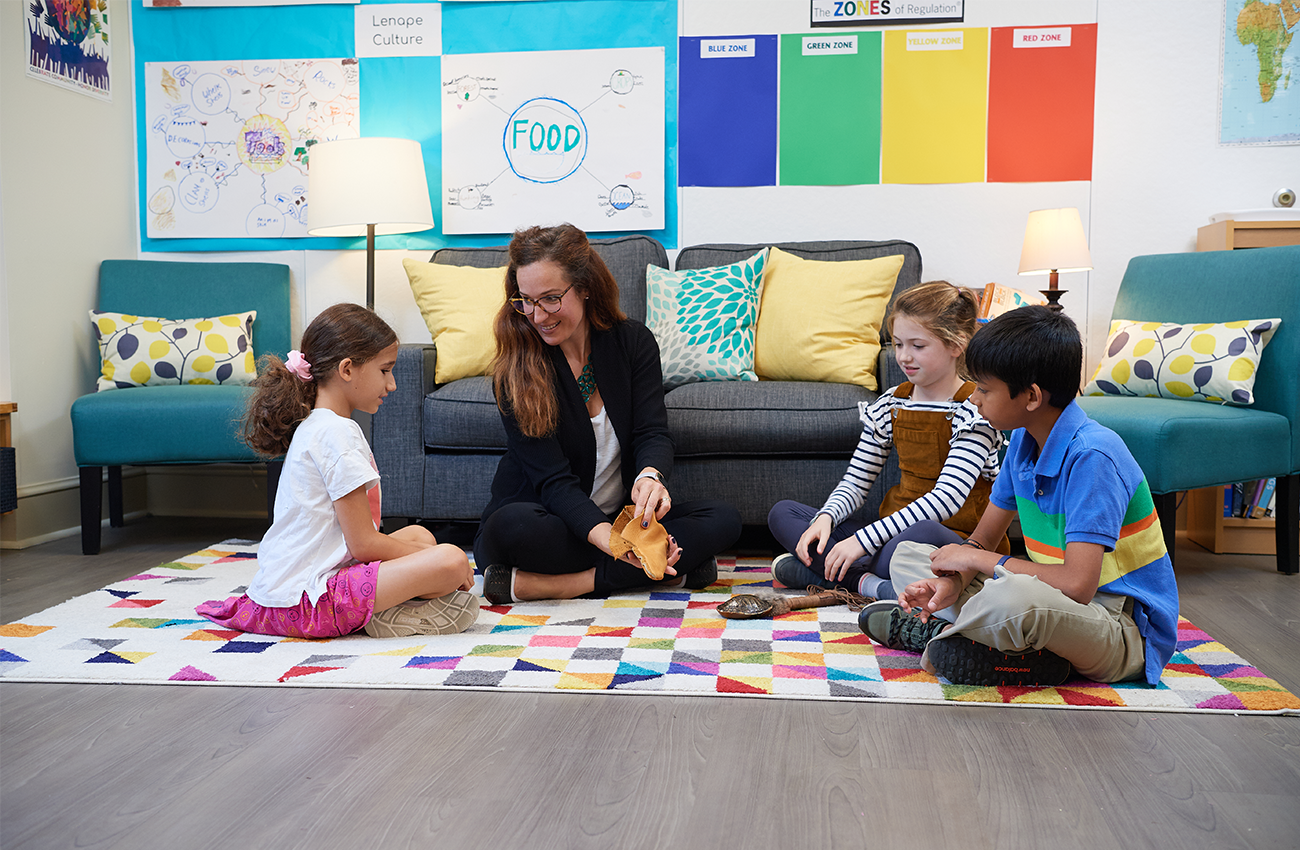Westtown School’s Commitment to the Whole Child
Thinking beyond education, Westtown prioritizes social emotional learning for students in all grades.

As adults we can all remember times when we were sick or distracted or had a personal problem which hindered our ability to be engaged, to perform our best at work, or interact well with others. The same is true for children, of course, and many variables can impact learning. If a child has an unidentified learning challenge, if they are emotionally or socially distracted or distraught, if they feel that they don’t belong, or if their physical health is compromised, then learning will be compromised as well. There is a body of research that shows learning happens most successfully when the whole person is healthy and engaged. These studies highlight the importance of whole-child education—an approach that Westtown School uses in grades pre-K through 12th grade—which provides for long-term student success.
Dr. Maria Alonso, one of Westtown’s school psychologists and the Dean of Integrated Wellness and Learning, shares, “The whole-child framework is organically embedded and central to Quaker education. These concepts are not add-ons, but central to the educational experience at Westtown.” Westtown faculty and staff emphasize that truth may come from any corner of the room, and that the unique qualities of each child are an expression of the Inner Light, which is the spark of divinity that resides in each of us. Alonso also stresses that “Parents are part of the whole-child education. By including them in the process, our mission to educate the whole child is reinforced.”
Student Support Teams
In support of the whole child, Westtown School’s multidisciplinary, Student Support Teams offer care and support in an intentional and integrated manner using evidenced-based practices from the fields of: education; psychology; diversity, equity, and inclusion; and medicine. This is accomplished through a developmentally appropriate and collaborative approach across the three divisions using a continuity-of-care model that promotes and inspires more confident, self-aware learners across time. Westtown’s Student Support Teams track and support all students’ academic, social, emotional, and physical growth needs. These experts work together to evaluate students’ unique learning styles and personal strengths in order to help them engage in learning with a positive perspective, a healthy self-image, and the coping strategies they need to reach their fullest potential.
Westtown School holds the following to be true:
- Children must be physically and psychologically healthy to learn.
- Young minds learn differently and that learning requires varied and creative approaches.
- Children are capable of developing the coping skills necessary to thrive as healthy and resilient people in the world.
These beliefs are foundational to our values-based education and our rigorous curriculum and as such, students are well prepared to navigate beyond Westtown with defined interests, a sense of direction, and the capacity to explore with confidence and passion. Alonso shares, “Teachers determine what brings joy to a student. From joy comes a passion to learn. By collaborating and developing tools, we are preparing our students for the world. We are helping them know themselves, exhibit empathy, and work well in teams.”
This commitment to whole-child education is reflected in the school’s mission: Guided by the essential Quaker calling to seek out and honor that of God in each of us, Westtown School challenges its students to realize their individual gifts while living and learning together in a diverse community. Westtown inspires and prepares its graduates to be stewards and leaders of a better world.
Learn more about Westtown School.





